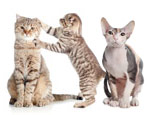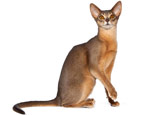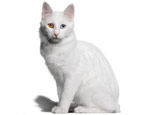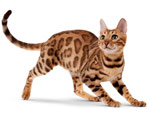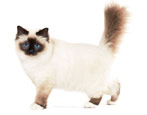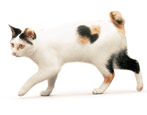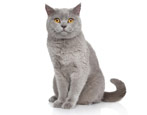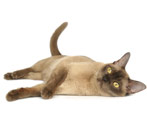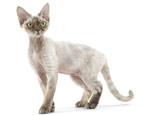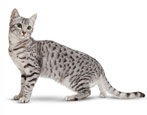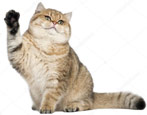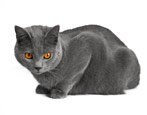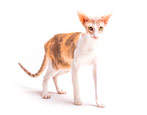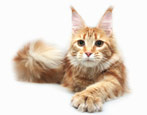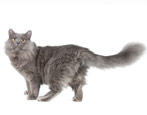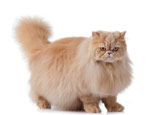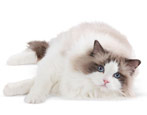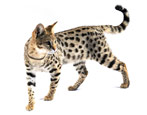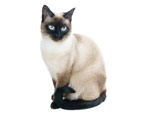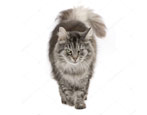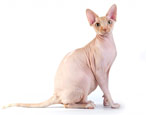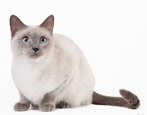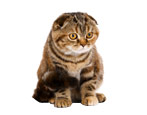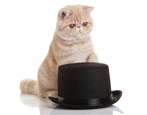What and how to feed a kitten?
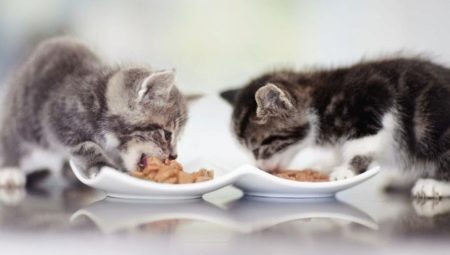
With the appearance of a small kitten in the house, the newly-made owner has a huge number of worries, one of which concerns the nutrition of the baby. A properly composed diet includes a full range of vitamins and minerals that are important for strengthening the immune system and forming the internal organs of the animal. Thanks to a balanced diet, the body of fluffy lumps will be able to fight many diseases on its own.
How to feed newborn kittens?
Artificial feeding of newborn kittens is allowed only in a few cases - if a mother cat disappears, dies or does not allow her cubs to come to her, having received postpartum stress... In the situations presented, it is better to find a nursing cat that can accept someone else's baby and feed him as her own. In some cases, it is allowed to attach kittens even to dogs, but at the same time, the owner must be present nearby, so that in case of danger, he can have time to pick up the kitten.
If the search for a nursing mother is unsuccessful, you should independently provide the newborns with food. In this case, the food should be as close as possible in properties to the milk of a lactating cat.
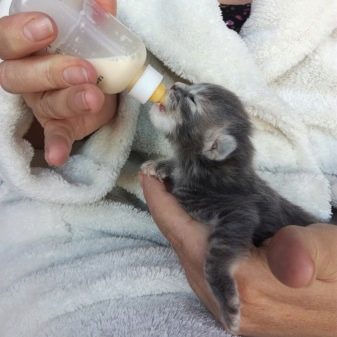
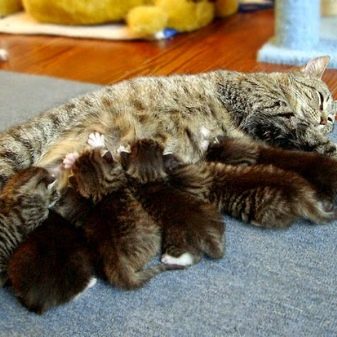
Proper nutrition of newborn kittens is the key to their good health. If small fluffy lumps were weaned early from the mother, their feeding falls on the shoulders of the owner.Previously, breeders had to look for food options for newborn babies that were similar in composition, but thanks to progress, artificial mixtures for animals began to appear on the shelves of most pet stores.
An analogue of breast milk can be given to a newborn kitten from the very first day. It is important to note that some owners use cow's milk as their baby food. This should not be done, since the fragile organism of mustachioed creatures is only developing in the first month and is not able to digest such a fatty product.
The main question for breeders who will to independently feed newborn kittens, is to study the specifics of their feeding... Some owners use the old method and try to feed the little creatures. pipette... Other owners use special nipple bottles... Of the options presented, a bottle is the most preferred. With its help, the baby will learn to suck, thereby developing a natural reflex.
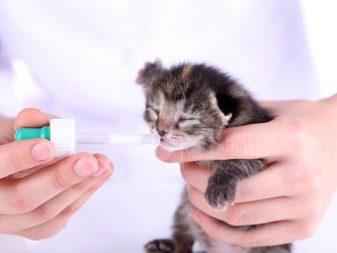
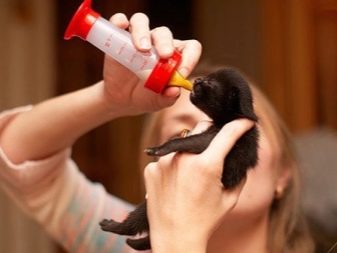
The first attachments to the bottle for the baby will be exhausting, since he will not be able to suck food on his own. In this case, the owner will have to squeeze out the milk little by little so that drops fall into the kitten's mouth. Perhaps the kitten after several feedings will be very hungry, since it does not receive the required amount of food, thanks to which it will quickly figure out how to eat with the help of the nipple. In addition to milk, kittens should be given warm water, but not from a bottle, but from a pipette or syringe. This is how the first 3 weeks of a fluffy baby's life should pass.
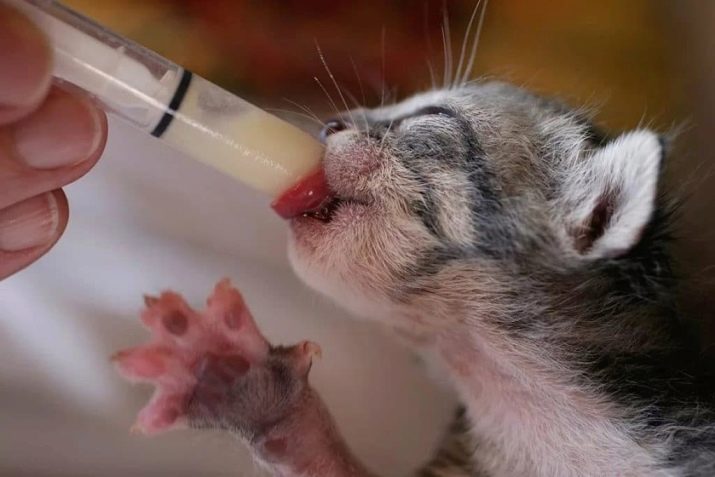
What can be given to grown-up pets?
After 3 weeks of life, fluffy babies develop an interest in other types of food, thereby it becomes possible to transfer the animal to more serious food. At one month old, kittens usually start eating from a bowl. Most veterinarians state that the most suitable food containing vitamins and minerals is natural food.
On the other hand, breeders claim that in the diet of a month-old kitten must be present dry or canned food, which contains a full range of vitamins, so necessary for the growing body.
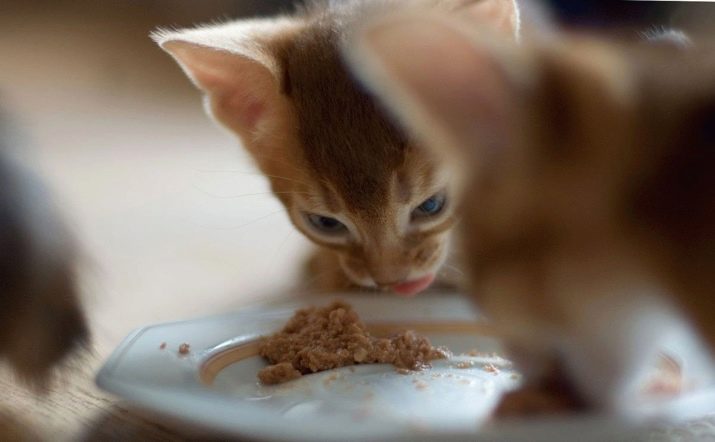
Choosing natural food, the pet owner will have to spend a small amount of time near the stove and prepare suitable dishes for the kitten, bringing them to a liquid consistency.
This could be:
- semolina porridge, cooked in milk or water;
- formula milk or diluted milk;
- boiled egg yolk;
- cottage cheese mixed with milk;
- boiled vegetables;
- low-fat meat broth;
- boiled beef, chicken fillet, fish.
In order not to harm the growing body of a kitten, it is strictly forbidden to give him products intended for human nutrition in the first month of his life.
Small kittens are a lot like human babies when they are introduced to complementary foods. Food is also chopped with a blender, and the number of feedings per day should be at least 4 times.
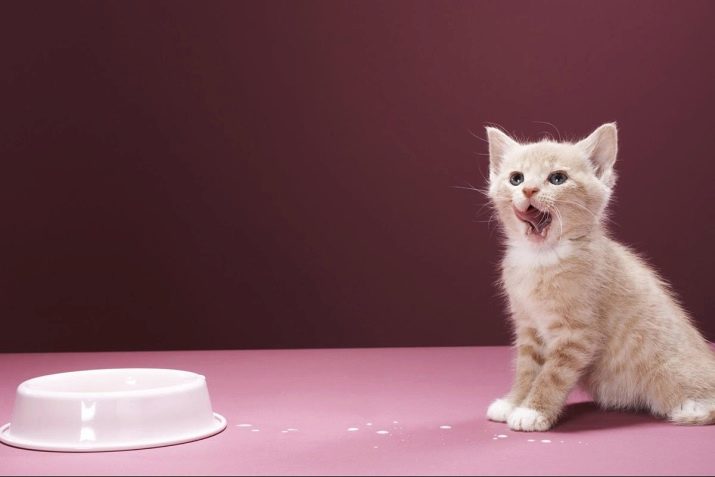
When the kitten reaches one and a half months, the diet can include soft cheese, as well as goat milk diluted according to the formula 4: 1, where 4 parts is goat's milk, and 1 part is water. At such a young age, babies should not consume pure cow's milk, as their intestines and stomach are not yet strong and may not digest it. Further, it is proposed to familiarize yourself with the products that need to be included in the diet of a two-month-old cat:
- lean chicken fillet;
- boiled fish;
- dairy products;
- porridge cooked in milk or water;
- Fillet of beef;
- soaked dry food;
- vegetables;
- raw yolk.
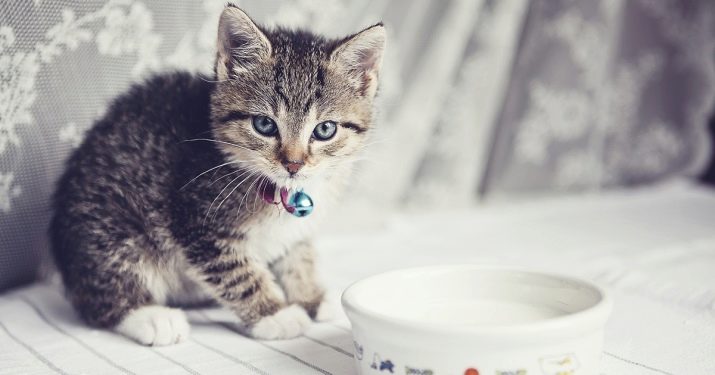
Three months of age - this is the most important period in the first year of a kitten's life. At this time, the body is finally formed, the mass increases, the appearance is determined, and most importantly, the change of teeth begins.For this reason, veterinarians advise introducing solid foods into the diet.
At 3 months old, the kitten is allowed to give meat not only boiled, but also raw. The main thing is not to forget to carry out timely prevention of worms.
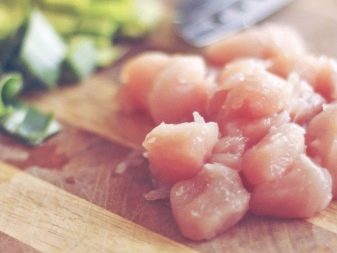
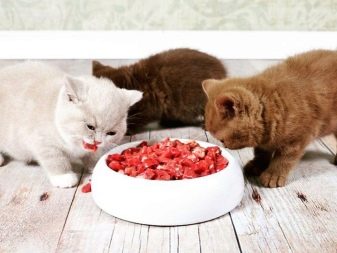
In addition to meat, additional foods containing the maximum amount of nutrients should appear in the kitten's diet. These include:
- raw and boiled fish;
- raw vegetables;
- cottage cheese;
- yogurt.
- porridge with milk.
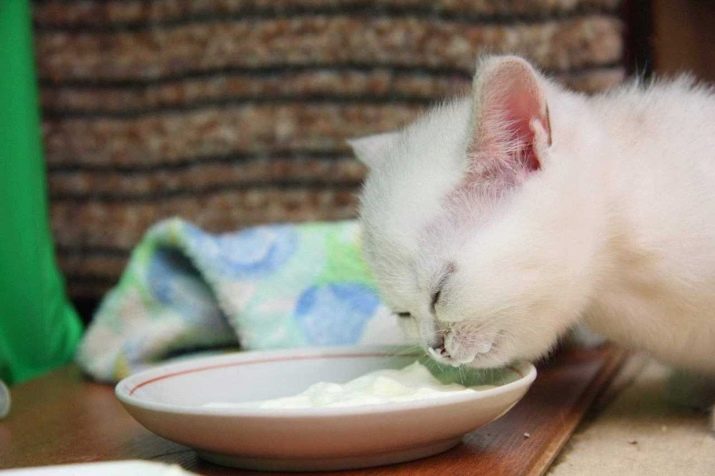
At the age of 4 months, the kitten gains more weight. For this reason, foods should appear in the diet that contribute to the development of muscle mass. The formed teeth by this time can already chew any food, cut into large pieces.
In a similar scenario, the animal must be fed for up to six months. At the age of 6 to 10 months, the number of feedings per day should be reduced. In this interval, the activity of body growth decreases, but taste sensations are formed.
The main thing during this period is not to spoil the pet, otherwise he will constantly demand goodies, which he is allowed to eat only once a week.
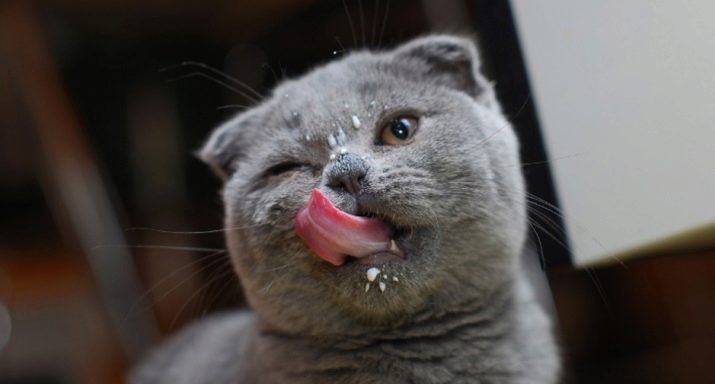
Natural products
Having opted for natural food, the kitten's owner will need to follow some rules. From the very beginning of complementary feeding, it is necessary to introduce as many different products as possible into the diet. If the baby does not get used to vegetables or cereals from childhood, it will be almost impossible to retrain an adult. For this reason, the baby should receive a variety of dishes from childhood.
The main and most important rule of accustoming a kitten to homemade food is not to feed it with handouts from the human table. A lot of spices are added to the food prepared for the master's use, which negatively affects the health of the animal. But the most unpleasant thing will be the subsequent annoyance of the beggar, who will not miss the opportunity to steal inaccessible food from the table.
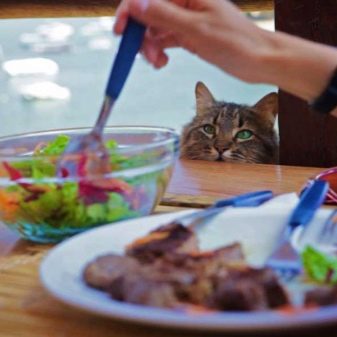
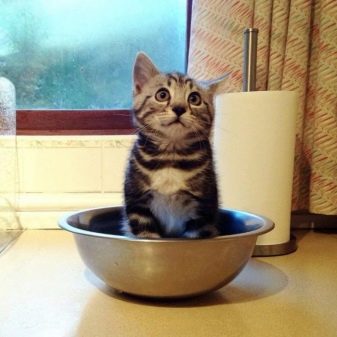
As additional feeding veterinarians advise buying weed in pet stores, which helps to get rid of accumulations of fur in the stomach. If the breeder does not trust purchased plants, he can grow his own grass on the window. The main thing is not to forget about the natural vitamins necessary for the health of the cat.
Professional cat breeders are ready to share the features of a kitten grocery basket with novice owners. Beef, chicken, and in some cases turkey and even boiled goose are especially honored on this list. Fish also plays an important role in kittens' diets. The main thing is to remember that there are no harmful elements in sea fish, which cannot be said about river inhabitants. Everyone knows that fish products are a strong allergen. For this reason, fish should not be on the menu often, 2 times a week is enough. For children, fish products are boiled, and adults can enjoy them raw.
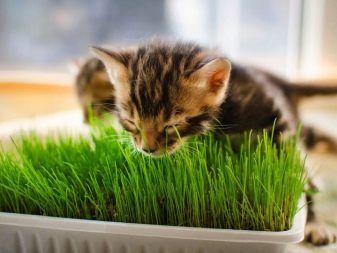
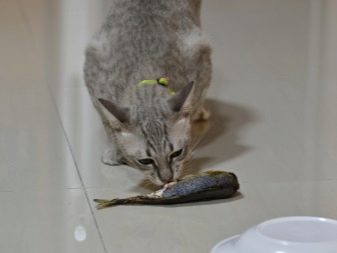
The most suitable food for kittens is milk.... However, not all adults can consume cow products. In some creatures, the stomach may not accept natural lactose. As an analogue, it is proposed to give the animal yogurt to drink. But it is important to ensure that its fat content is not high.
Another indispensable product for a kitten is considered cottage cheese mixed with yolk... As the main delicacy, it will fit rennet cheese mixed with sour cream... For the full development of the body, a kitten needs to consume fiber, which is found in vegetables and cereals. At a young age, kittens should be given porridge cooked in milk. Slightly grown individuals are suitable for cereals with vegetables, cooked in meat broth.
It is important to remember that a kitten of any age must have constant access to clean water, so the pet owner needs to change the liquid in the bowl several times a day.
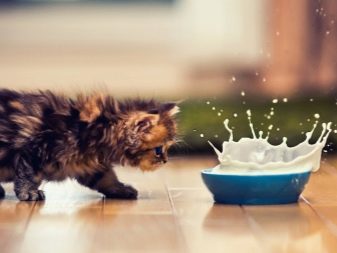
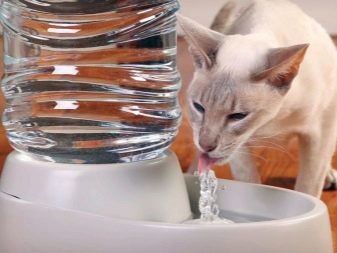
Stern
Ready-made food sold in every pet store is gaining more and more popularity every day. Indeed, they are very convenient, since they have a pre-calculated dosage, they are quite easy and convenient to store at home, and do not take up much space.
It is important to note that the composition of the feed contains the necessary elements for the full growth of small creatures. For most manufacturers, the priority is the characteristics of the breeds of cats, on the basis of which each individual type of food is compiled.
At the same time, products manufactured on an industrial scale by different companies differ in pricing policy, quality and composition.
For small kittens, special types of food are produced. It is from them that the animal should be accustomed to industrial products. To begin with, the kitten should be offered canned food of a jelly-like consistency with finely chopped pieces of meat. They are sure to please every cat. Once your baby is used to wet food, you can start adding dry pads to the food, gradually reducing the amount of jelly canned food and increasing the dry feeding. So it will turn out to transfer the animal to full-fledged dry food.
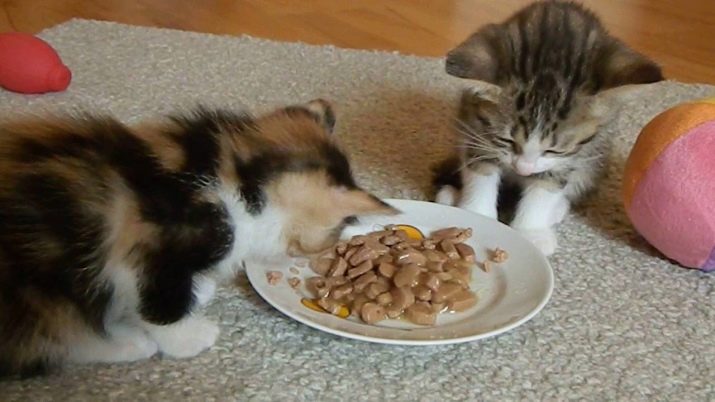
How many times a day to feed?
In the first days after the birth of a kitten with artificial feeding, the baby should be given a bottle with the mixture every 2-3 hours. For this reason, the feeding procedure is quite grueling and requires the constant presence of the owner at home. And after 3 weeks, additional complementary foods can be introduced into the kitten's diet. By 4 weeks, the kitten should have a clear meal schedule and should consist of about 5-8 feedings, including at night. But unfortunately, there are times when additional complementary foods are required to be given to babies much more often.
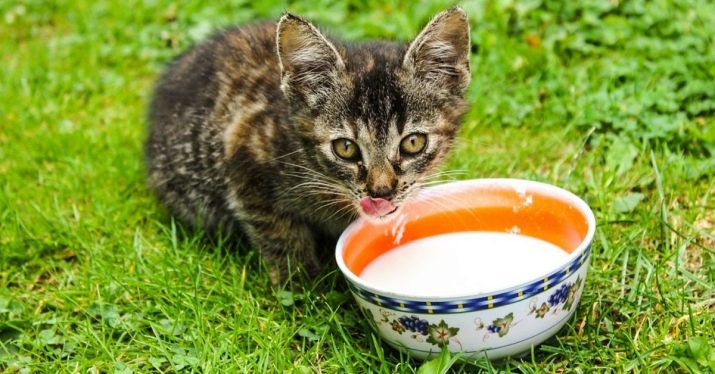
The breeder is invited to familiarize himself with the change in the number of feedings per day, depending on the age of the pet.
- A kitten of 2 weeks of age should be fed approximately 10-13 times a day, including at night.
- Fluffy lumps of one month old are eaten 8-11 times a day, including the night.
- In the period from 1 to 2 months, feedings should be 7 times a day. In this case, the night is excluded.
- From 2 to 3 months, a kitten's nutrition consists of 6 feedings.
- In the period from 4 to 5 months, the kitten must feed 5 times a day, excluding the night.
- From 5 to 9 months, feeding the baby consists of 4 times.
- From 9 months to a year, the kitten is fed 3 times.
- With the onset of one year of age, the kitten must be transferred to two meals a day.
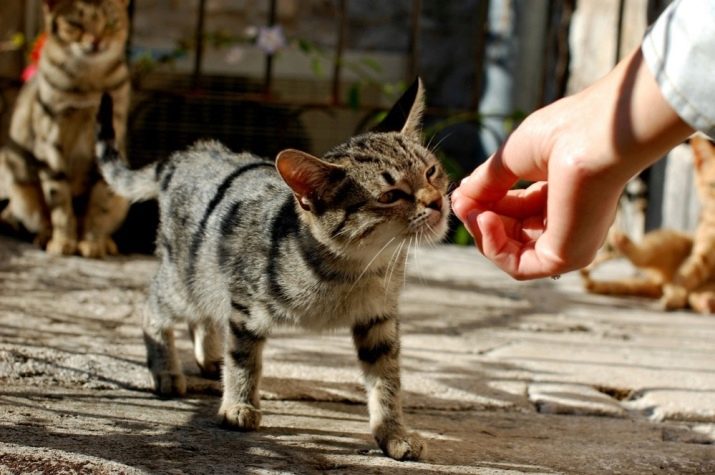
In addition to the number of times the kitten is fed, the owner needs to know how much food the pet should eat at one time.
- Until one week of age, the kitten should consume 30 ml of food per 100 g of its own weight. Accordingly, if a kitten weighs 200 grams, then milk should be 60 ml.
- At two weeks of age, the kitten should eat 38 ml per 100 g of its own weight.
- At 3 weeks, the volume of food should be 48 ml per 100 g of the kitten's weight.
- At 4 weeks of age, the kitten should eat about 50 ml of food per 100 g of its own weight, with a subsequent increase in this amount.
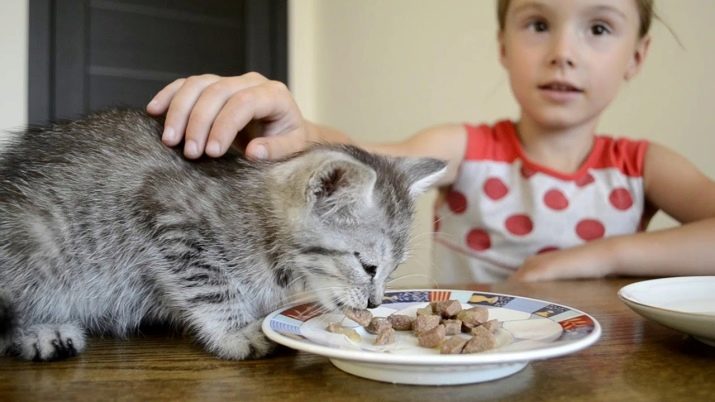
Further, it is proposed to familiarize yourself with the daily feeding of the growing individual.
- At a month and a half, the kitten should consume 120 g of food per day.
- The daily diet of two-month-old kittens should consist of 160-180 g of food.
- The daily norm of kittens aged 3 to 6 months should be about 200-240 g. In this case, 40 g should be meat products.
- Half-year-old babies need to eat 180 g of food.
- In the period from 10 to 12 months, it is necessary to reduce the amount of food to 200 g per day.
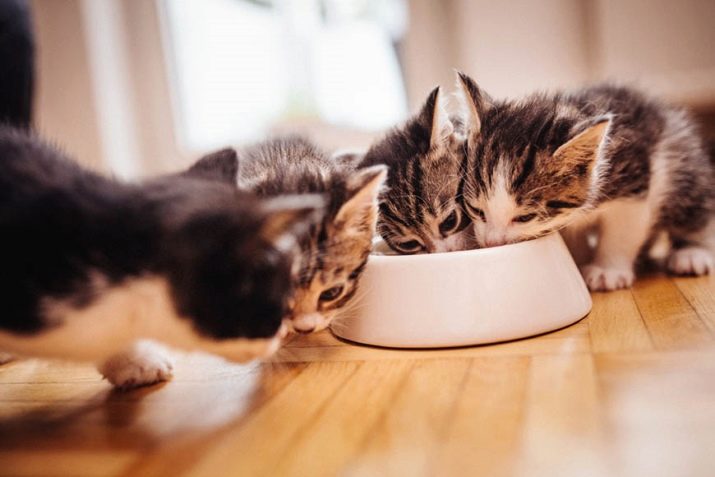
Features of the preparation of the diet
When compiling the diet of a small kitten, the age of the animal is of great importance. In the period from 2 to 4 months, kittens erupt their teeth.... For this reason, babies can be partially transferred to adult nutrition, thereby accustoming the animal to independent food and drink from its own cup. In this age interval, the kitten shows active growth, health improvement, and the formation of internal organs. The work of the gastrointestinal tract is finally established. That is why the menu of fluffy lumps should be enriched with the maximum amount of vitamins. It is important to supplement the diet with protein products.
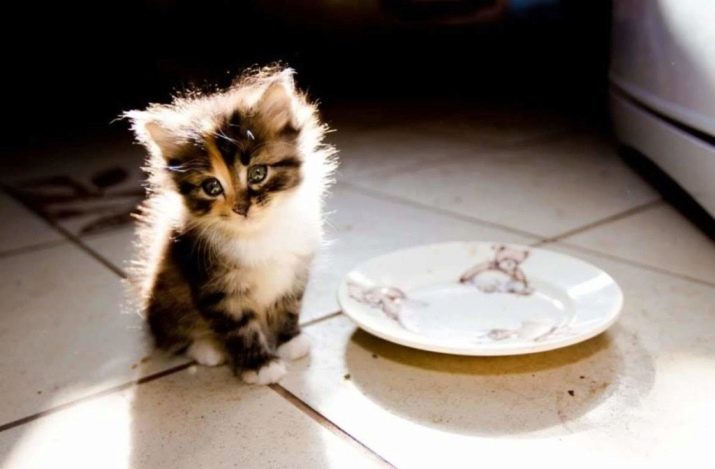
In the next phase of development - from 4 to 6 months, the baby begins to actively gain weight. That is why the basis of the diet should consist of foods that increase muscle growth. By this time, the kitten's jaw is completely formed, the teeth have all erupted, respectively, the baby can eat large pieces of beef or chicken meat. Some breeders prefer to feed offal to their pets. But first, they must be cut into pieces. For this age interval, an increase in calcium in the diet, which is found in most fermented milk products, is necessary.
In the period from 6 to 10 months, the growth of kittens becomes almost invisible... At this moment, the animal's taste preferences are formed. The pet owner should be more vigilant. It is strictly forbidden to indulge the kitten and pamper him with delicacies.
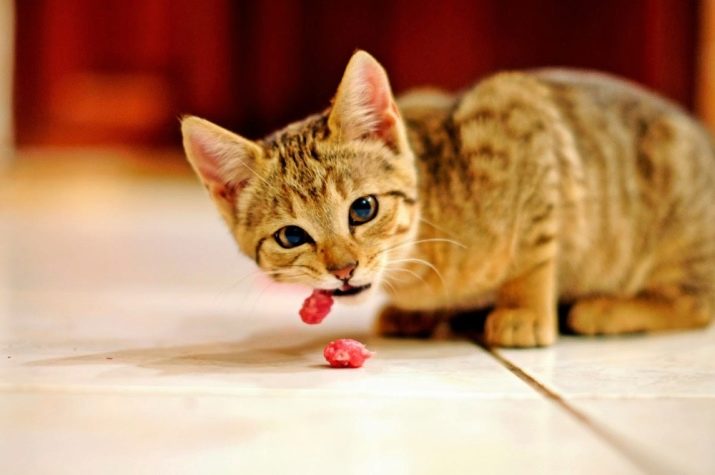
What shouldn't be given?
Most people think that cats' favorite foods are milk and sausages. In reality, everything is much more complicated. For a cat to be healthy, it must be taught from childhood to proper balanced nutrition.
In addition to food, which must be present in a kitten's diet, there is a list of foods that are undesirable for consumption.
- Liver. It contains a huge amount of vitamins A and D. With regular feeding with this product, an oversaturation of vitamins will occur in the animal's body, which can lead to negative consequences. At the same time, pampering a kitten with a liver is not prohibited. It can be given several times a week as a vitamin supplement.
- Economy class dry food. Of course, they attract many breeders at an inexpensive cost, but they contain a huge amount of harmful substances that, with prolonged use, negatively affect the health of the animal. That only there are dyes and all kinds of preservatives.
- Food made from legumes. They cause constipation and bloating. By a similar principle, it acts on the cat's body and potatoes.
- A fish. With constant feeding of the kitten with fish products, the animal develops urolithiasis. To avoid such consequences, fish should be fed no more than twice a week. And kittens under the age of one month should not be fed with fish at all.
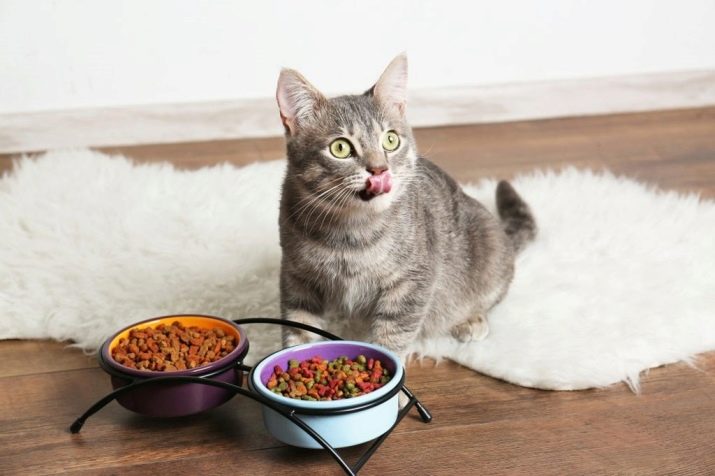
And below is a list of foods that are hazardous to a kitten's health.
- Pickles, smoked meats, fatty and spicy foods. They contain a huge amount of seasonings that can harm the intestinal microflora of a kitten.
- Raw meat. This product can be included in the diet of kittens that have reached 5 months. Younger cats need to boil meat products.
The described products can bring the kitten health problems, but it is possible to cope with them at home, only sometimes you have to go to a veterinary clinic.
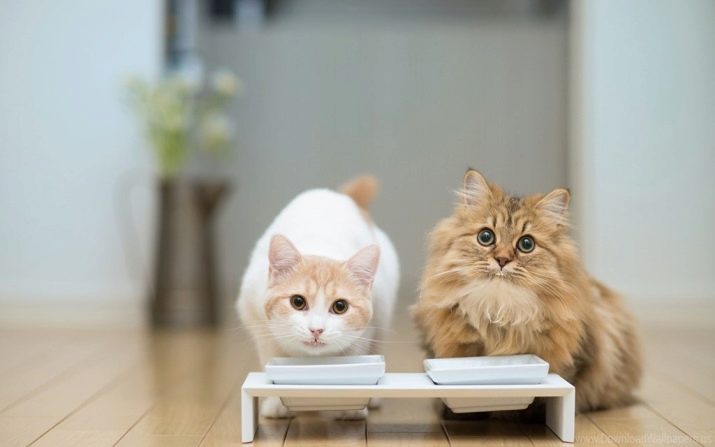
In this case, it is proposed to consider products that can lead to the most sad consequences - death. Moreover, the death of the animal will not come immediately, but after a certain period of time.
- Sweets. For a little kitten, this is a real poison. The body of an animal by its nature is not adapted to the consumption of chocolate. It's good that not every individual eats candy or cookies.
- It is very dangerous for a kitten to give fish skeletons and bird bones... Their structure in a gnawed form can cause irreparable harm to the animal's body. When a cat chews bones, pieces of the skeleton fall into pieces with sharp ends. They also enter the stomach, respectively, they can scratch the esophagus or even puncture it, which leads to internal bleeding.
- Expired products. Any food that has long expired is a breeding ground for a variety of pathogenic bacteria and putrefactive microorganisms. This food will not lead to anything good, especially if you feed it to a small kitten.
The information provided will help novice breeders to feed a newborn kitten and raise a healthy adult cat from it.
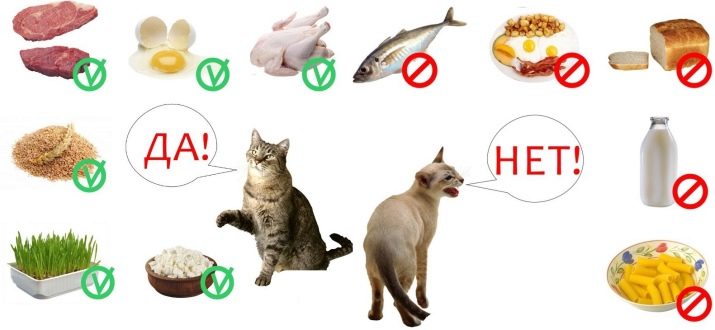
In the next video you can find out what the breeders of small kittens are fed with.
